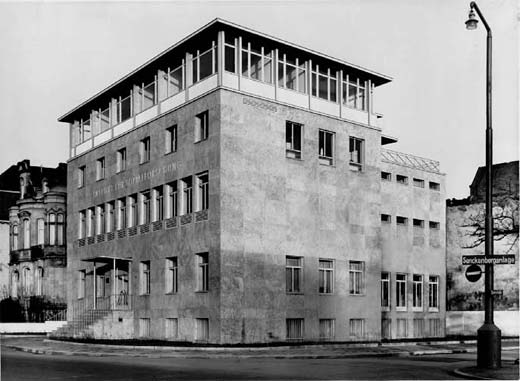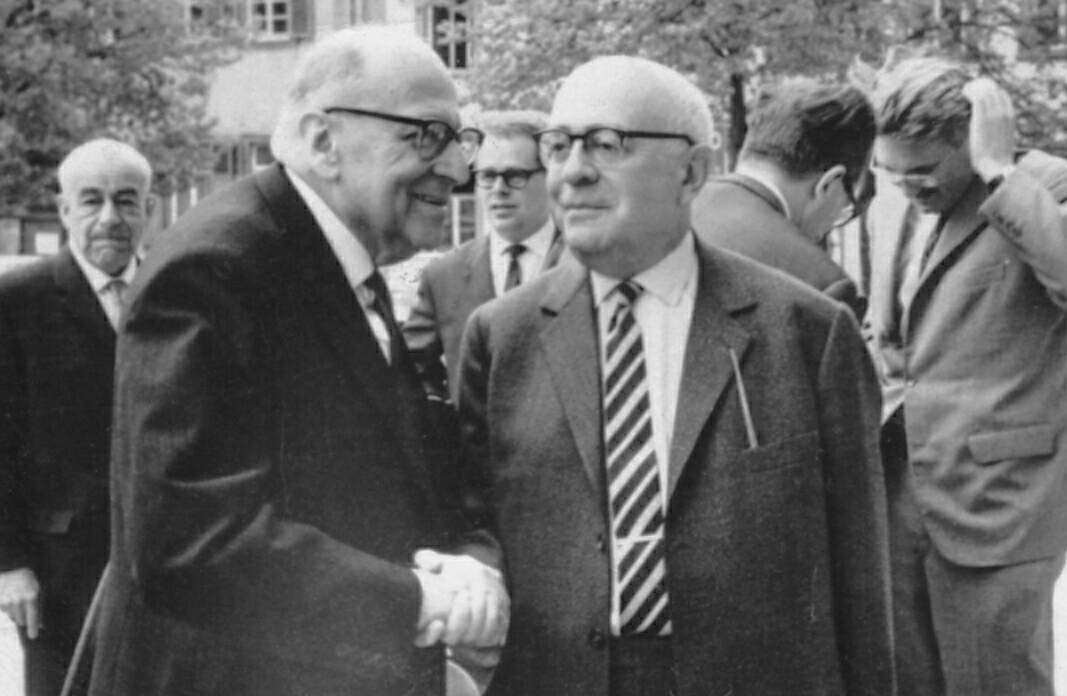- History
- Commitees
- Library
- IfS Archive
- Adorno Archive
The History of the IfS
Foundation
The Institute for Social Research was established as a foundation in 1923 with funds provided by Felix Weil. It was initially housed in the rooms of the Senckenberg Museum until its first dedicated building could be inaugurated in June 1924. The first director of the IfS—at that time an independent research institute within Frankfurt University—was Carl Grünberg, who made the journal Archiv für die Geschichte des Sozialismus und der Arbeiterbewegung (Archive for the History of Socialism and the Labor Movement), which had already been founded in 1911, the main periodical of the Institute. The title of the journal was programmatic for the Institute’s research orientation, namely the study of the history of Marxism and research on current political and economic developments in the spirit of Marxism. In 1929, Max Horkheimer assumed the directorship of the Institute. The interdisciplinary program of the Institute, today known as “Frankfurt School Critical Theory,” evolved away from orthodox Marxism toward social criticism grounded in social philosophy. This change found public expression in a new publication organ, the Zeitschrift für Sozialforschung, which appeared from 1932 to 1941-42.
Exile
By the time the Frankfurt institute was shut down by the Gestapo in July 1933 on account of “subversive activities,” it had long since moved to Geneva and most of its staff were in the process of leaving Europe. In 1934, the Institute moved to New York where it was housed in Columbia University. During this period, the Institute investigated, among other things, the rise of National Socialism and devoted itself to research on authoritarianism, the analysis of anti-Semitism, and the struggle against fascism. Relevant works from this period include the study in social philosophy Dialectic of Enlightenment (1944) and the study in empirical sociology The Authoritarian Personality (1950) from the Studies in Prejudice series, of which Horkheimer was co-editor.
Reopening
In 1949, the IfS returned to Frankfurt following overtures from the City of Frankfurt and the State of Hesse, and in 1950 it was re-established as a publicly funded private foundation. Initially, the Institute conducted its work in the basement of the old and in the meantime bombed-out first Institute building, until the new building was inaugurated on the present site in 1951. Under its directors Max Horkheimer and Theodor W. Adorno, the research of the postwar years was dominated by the democratization efforts, with the IfS conducting comprehensive studies on democratization and political education in West Germany. Against this background, the teaching of sociology—the IfS regarded sociology as the science of democratization—was also conducted at the Institute until a course of study in sociology was established at Frankfurt University. The book series Frankfurter Beiträge zur Soziologie served as a publication organ during this period. Under the subsequent directors Gerhard Brandt and Ludwig von Friedeburg, the Institute’s research turned increasingly to industrial and labor sociology and the sociology of education. Since the 1970s, the IfS has conducted purely third-party funded research.
Present
Axel Honneth was the director of the IfS from 2001 to 2018. During this time, the programmatic focus of research was again increasing on social philosophy, taking into account the results of empirical social research. Since then, the publication organs of the IfS have been the journal WestEnd. Neue Zeitschrift für Sozialforschung and the book series Frankfurter Beiträge zur Soziologie und Sozialphilosophie. Stephan Lessenich has been Director of the IfS since 2021.



